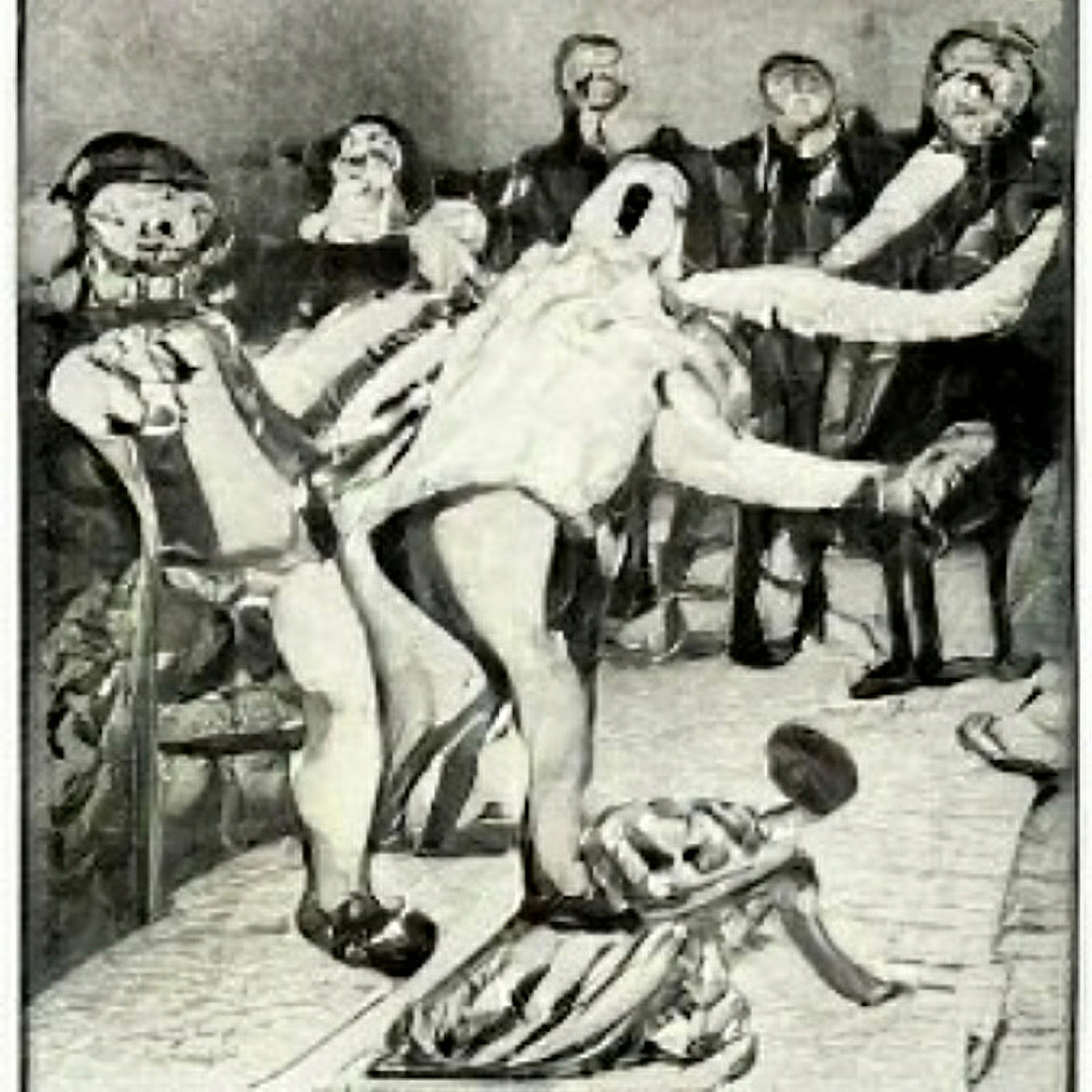

HISTORIE UND HYSTERIE
Most of us have come to know a certain kind of notion, of something lingering in your past, a more or less vague memory of a rather uninteresting occurrence, which resists sinking into oblivion. Jean Baudrillard proclaimed that, once we would have passed that magical horizon of the year 2000, we would be stuck in the feedback loop of history forever; following his logic, with versions and meta versions of history. As parents teach their children, society teaches subsequent generations — which will discover and build upon the past inside the present – retrospection is (to some degree) eventually looking upon one’s own past, evoking ideas about what happened, more or less. To some extent, I write this with a smile on my face, thankful for the better part. Yet there are things which simply do not go away, annoying things. There seems to be a law of nature, some equation, which expresses the likeliness of negative entropy to prevail way longer than the opposite. Good events, good memories, they keep on coming, yet always encroached upon by crap. Unfortunately, the crap usually outweighs the great stuff there is. This is far from being a rant. I am seeing it as it is, though from a highly entertaining, analytical perspective.
Each photocopy is a decay product of the original, a lossy mutation, amalgamating with unrelated artefacts; hence, original information gets lost or comes out differently at the other end. For the sake of an argument, let’s zoom out for a moment and frame a mundane example: You remember that relationship you once had, the one who wasn’t special yet, for some reason, remains in your memory. A quality shared by that tech-house bomb from way back in 20xx. After a couple of “huh’s” and “OK, thanks!”, you move on in life, pursuing less annoying paths but, … oh, well, there they come again.
Not long after launching Future Archive Diary, I had a conversation with Patrick Raddatz (Robert Johnson Theorie lecture series/Institut für Klangforschung Offenbach) whom I got to know from an invitation to a lecture in 2014, and subsequent interview for his diploma thesis “House Nation BRD. Regionale Netzwerke in House und Techno von den Anfängen in den 1980ern bis zur Definition eines städtetypischen Sounds in den 1990ern”. His diploma work comprised a newly designed scientific tool, to assist serious research efforts grounded in data. Apart from being a growing database with an inbuilt ability to scrape data online, it allows for visualizing network structures between distinct entities gathered in his research, by means of modular combinations of any sequence of keywords present inside. Technology, as in Big Data or Knowledge Discovery in Databases, allows for new conclusions drawn from any given larger sets of data. Methods combining quantitative and qualitative research still aren’t common in cultural sciences, yet today, they allow for visually exploring large networks in any given scale. As Patrick’s research evolved in a PhD project over the last years, his interest in the evolution of structures and networks in a specific part and time frame of club culture, has long left the narrow-minded local patriotism and nationalism known to the prevailing industry-led making of Electronic Dance Music histories. Entangling some of the hairballs of information and myths, the idea to render networks of communications between humans, but also companies and other entities, which brought to life some parts of popular Electronic Dance Music™, remains one of his key motivations to this day. For the sake of feasibility, Patrick mainly researches the decade between 1985 and 1995 by means of self-conducted interviews, review and analysis of contemporary literature and artefacts, furthering into sound cultures, artistic-, but also socio-economic phenomena. Trigger effects, inspirations, the flow of ideas, but also the flow of money, as just one example.
Patrick and I indulged into a couple of lengthy email conversations, every single one worth a podcast on its own. Patrick lives and works in Frankfurt am Main, my place of birth, in which I lived and worked until 1997, yet, more importantly so, close to the burial grounds of the recently deceased, lifeless corpse of Modern Electronic Music™ itself. Before going in depth on a couple of very precise topics with Patrick, which he (as a creative and intellectual player) has been constantly working on for almost a decade or so, I had been thinking about how to tackle that conversation. It’s an entertaining, yet highly complex realm of analysis, as there are just too many angles to cover or to even comprehend. However, today I found a slogan that pretty much encapsulates that trigger: Historie und Hysterie. Essentially, this is an attempt to make sense of things, to put stuff in perspective.
This shall be read as a brief introduction to what will condensate as an audio podcast, based on the conversations with Patrick. We will try to untangle the sometimes co(s)mical mesh of histories, or must we say, debunk some (of) His Stories? A transmission touching history from a distance — locally for me, sitting in a capsule, orbiting earth; aesthetically (as in Aisthesis) and structurally for Patrick, living close to a socio-economical and cultural black hole.
All that being said, I don’t care about the past. In a certain way, I am a futurist — not at all relating to Futurism’s toxic historic past — in the Nietzschean mode of the very only thing, that future beholds for us, is our own death. Concluding this, I’ve considered Futurism as a truly existentialistic belief, radically denying the present.
Stay tuned for more to come on this topic.
One Response to “Entry #11 – Historie und Hysterie [Intro]”
It’s hard to find well-informed people about this subject, but you seem like you
know what you’re talking about! Thanks